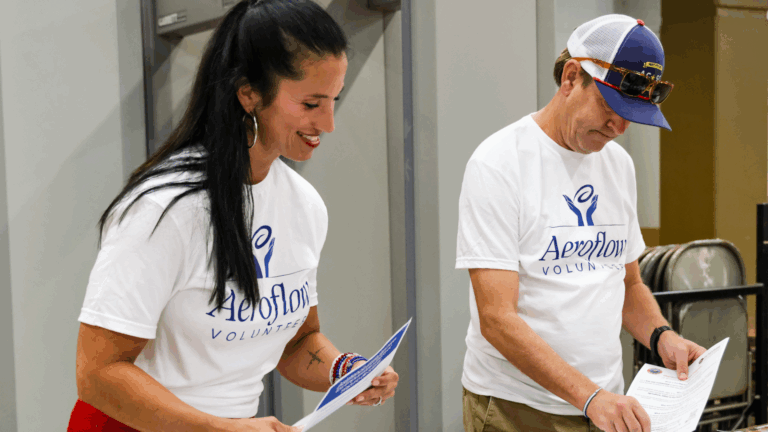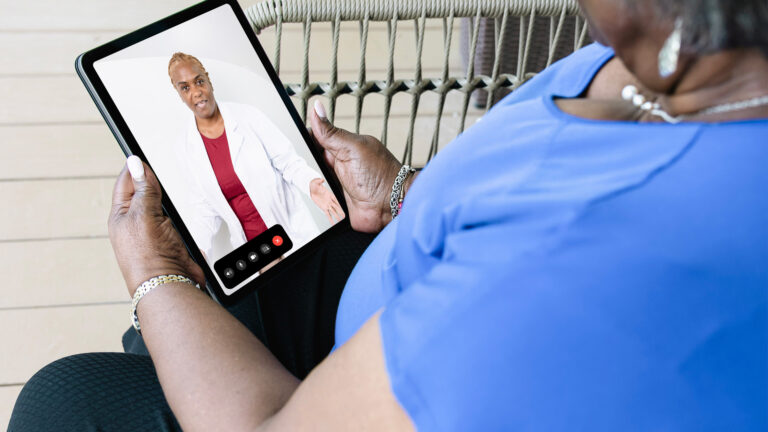This content has been reviewed for accuracy by Mike Cantor, Chief Medical Advisor at Aeroflow Health.
Dive into our blog inspired by our webinar, “Breastfeeding & Health Equity Disparities: Innovative Strategies for Health Plan Providers,” to discover how you can play a pivotal role in fostering inclusive healthcare environments and ensuring every mother receives the support she deserves. For more comprehensive insights, don’t miss the chance to watch the webinar playback.
Table of Contents
What do lactation consultants and doulas do, and how do their roles differ? What does it look like to be an Aeroflow Health lactation consultant?
Leteace: As a lactation consultant, we’re there to sometimes clarify breastfeeding goals with moms and give them the education and support that they need. We know that with breastfeeding, support is one of the most significant indicators of success and preparedness, so we try to give them a headstart for that and also let them know that we’re there to support them after the baby arrives. Currently, Aeroflow Breastpumps offers both group and 1:1 education sessions for moms. The group sessions seek to help further clarify knowledge on specific topics, and then 1:1 sessions are dedicated to meeting mothers where they are in an individualized format. This could look like helping write a birth plan or providing tailor-made tips and education based on mom’s needs. A recent Aeroflow Breastpumps study that found that 97% of moms who attended our classes felt more confident in their breastfeeding journey.
Aleah: A doula is a non-medical person trained to assist families during childbirth and who might also support the family after the baby is born. Where doulas and lactation consultants differ is that not all doulas will have additional lactation-specific education and training. As far as doula certification, many doulas will take more breastfeeding classes to get basic knowledge but they may not get the full certification to attain the additional tools that help families be successful with breastfeeding initiation and to help with the duration of breastfeeding.
How do commercial insurance plans, typically employer-sponsored, differ from Medicaid programs in terms of providing these maternal health benefits?
Kiera: We’re seeing many differing coverages regarding policies for doulas and lactation consultants. In addition to what Aleah said, Aeroflow stands out when it comes to prenatal education. We help ensure that mom and dad or the parents feel prepared. We are seeing that we have to educate many health plans on the differences between doulas and lactation consultants. It can be easy to misunderstand the differences between the two. With commercial plans, we’re seeing a lot more coverage with doula services and lactation, which is wonderful, and we’re seeing a lot of Medicaid states break into that space as well. We are excited to see many policies really come to terms with the day and age of allowing telehealth services, which is wonderful as well.
As a physician who cares for mothers and babies and partners with Canopie, what opportunities do you see for health plans to better support their members with maternal mental health services, particularly about lactation?
Dr. Haggerty: There is definitely room for improvement in the lactation and mental health space. In my private practice, Fourth Trimester Doc, I focus on caring for dyads as a whole, so we see birthing people and newborns and serve them as a unit. We must identify that the health of the infant is reliant on the health of the birthing person and vice versa. Around the mental health space, I don’t see that health plans are providing the same level of coverage. Many people have cost-sharing requirements, out-of-pocket expenses or have trouble finding care with providers that are well-versed in perinatal education. This is definitely a barrier to care for folks.
Mental health is critical for breastfeeding or body-feeding success, especially when challenges arise. We see that lactation challenges and perinatal mental health disorders go hand in hand. When we have someone who has challenges with lactation, it’s almost inevitable that they will also have challenges with their mental health and vice versa. I actually use lactation challenges for diagnosing or deciding if there are mental health concerns that need to be addressed. For example, if someone has a huge freezer stash of breast milk that they keep storing, this is an indicator for me that there might be postpartum anxiety involved. This is just another reason why lactation and mental health go hand in hand and must be addressed in correlation to one another.
Recently, Aeroflow Health collaborated with Canopie, Florida Blue and GuideWell to better provide access to mental health services and reduce health disparities. Can you explain what we learned?
Ryan: It has been an interesting journey to partner with Canopie and Florida Blue. We’ve seen the evolution of the breastfeeding benefit that initially came about as a part of the Affordable Care Act and has slowly begun to change over the years. We’re starting to see the strides and elements coming together. The breast pump was one of the first items covered under the ACA for health plans and then breast pumps and supplies were introduced alongside the importance of access to clean parts to continue breastfeeding. Then came the introduction of lactation consulting and doulas, which has led to additional positive outcomes. Now, we’re seeing the opportunity to interweave mental health into the benefit. It was interesting in the Florida Blue pilot; we were able to reach many of their members who wouldn’t otherwise engage with their health benefits and then help them engage with maternal mental health resources through Canopie. We also were able to help Florida Blue identify members that were medium to high risk and needed extra support, and then Florida Blue was able to deploy their case management teams to better focus on those members who presented a need.
Based on a recent United States Lactation Consultant Association study, only 21% of IBCLCs identified as non-white. Why is this concerning, and what is a maternity care desert?
Leateace: Great question! Recently, March of Dimes released a report on maternity care deserts across the United States, speaking to how there is a lack of maternity care resources like hospitals, birth centers, and other locations where moms can get support during the perinatal period. Access is genuinely a concern. In terms of providers and diversity, it’s important because patients want to see themselves in their healthcare providers. While cultural humility is a big agenda item right now, it’s also vital to have culturally congruent care, where they feel like their provider is a safe space where they can share their concerns and worries and receive the support that’s specific to them. So, it’s important to try to increase the diversity in this profession.
Aleah: One of the things we love to have, after our classes and consultations, specifically with Aeroflow, we have these surveys that patients can immediately fill out. It’s very helpful to get this feedback. For example, here’s one testimonial from a patient speaking about her experience with Leteace: “The Aeroflow classes have taught me a wide range of information that I did not get from taking classes for my first birth. Leteace consistently had great information to share with the classes I was in and was very knowledgeable about birth and breastfeeding, and I plan to work with her again if and when I schedule another appointment.” These moms are getting the care that they need and are very much coming back for seconds and thirds. They want this help and support via telehealth because they can’t sometimes get it in these maternity care deserts. Sometimes the people that we see in the classes are from small cities where there is 1 hospital and 1 lactation consultant or no consultant at all. Being able to provide that virtual space for these families is so helpful and they deserve to have it.

When you think about the challenges we face in improving maternal health and the health of babies, what gives you hope, and what worries you?
Aleah: As far as what is giving me hope, we are making leaps and bounds on getting more access to these insurance companies that are allowing for more access and support. Part of the challenge that I feel like I have, especially as a person of color, is that we just need to find more avenues to get more people credentialed to be able to help more people because that ultimately affects the rates of differing ethnicities among providers. Leteace and I work so hard to do what we do to show others that it is possible to do what we do. I am hopeful that we are going to continue to make great strides in a positive direction.
Leteace: What gives me hope is that there are still people out there who need help; they never go away. If the hope goes away, then the help goes away. My mind tells me that I have to keep pushing through for these people; it’s not about me, it’s about the bigger goal. We see the maternal health rates in our country and see how people have suffered. On the positive side, we’ve seen more equity scholarships to make access to education easier for those wanting to provide maternal support. We are seeing more baby steps taken towards telehealth, and there’s always hope that these steps become a little bit bigger. Holding onto hope for ourselves is important. We see that what we’re doing is making a difference, whether in the surveys we receive or the face-to-face meetings, and it encourages us to keep moving forward.
Michelle: Hope for me is seeing that so many companies are being so innovative and addressing these issues by connecting and coming together to find solutions. Personally, what keeps me up at night is that I want to move toward an insurance model or coverage that provides holistic dyad care. I think that siloing patients out from each other doesn’t make sense and doesn’t work. This coverage would include lactation, mental health, physical recovery, and newborn care, all of which would be covered by insurance. This model addresses the fact that people need support during this transition time and it’s not just individual things that people need to meet their deductible for and have cost-sharing for; let’s do it as a whole and provide this coverage as a whole unit.
Kiera: What’s really great is Aeroflow is really meant to be that partner for that continuity of care. We’re here to provide care to moms from the moment they find out they are pregnant all the way through postpartum. We’ve made some major strides since this time last year. We’re partnering with Virginia Medicaid, Tennessee Medicaid, and Georgia Medicaid, so the coverage of lactation and doula services are definitely expanding. We really are seeing health plans view the Affordable Care Act as the floor and not the ceiling. We’re seeing health plans truly align their policies, as far as maximum benefits with the affordable care act to be that continuation throughout the duration of breastfeeding. For example, if parents want to attend classes prenatally and then all the way into postpartum until their child is 2 years old, limiting class coverage to 3 or 6 classes, this is truly not the duration of breastfeeding without cost-sharing because at some point they will most likely have to tap into deductibles or involve copays if they meet that maximum benefit. So, we are really seeing a lot of health plans correlate their policies along with the true meaning of the Affordable Care Act. It’s really great to see these policies expanding into the Medicaid space as well as further flourishing in the commercial space. We’re seeing a lot more coverage with the group classes. Health plans and stakeholders are seeing the true benefits as well as the value of telehealth. Meeting parents where they are is crucial. We want to be that partner to lift any barriers. We’re finding studies that show telehealth is as effective, if not more effective than in-person care.
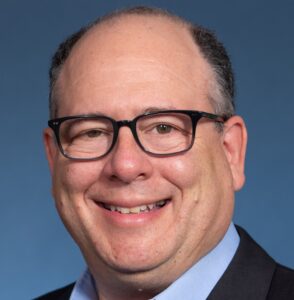
Michael Cantor, M.D.
Dr. Mike Cantor is a geriatrician and attorney who has extensive experience designing and implementing value-based care, quality improvement, and care management programs for healthcare providers and health plans. He works as a fractional (part-time) Chief Medical Advisor for Aeroflow Healthcare, Uber Health, and other technology-enabled health services companies, value-based care organizations and digital health companies. Previous roles include: CMO for Bright Health Plan, an innovative health
insurer; CMO for CareCentrix, a leading outsourced home health, durable medical equipment, and post- acute care benefits manager recently acquired by Walgreens; and CMO for the New England Quality Care Alliance (NEQCA), the physician network affiliated with Tufts Medical Center, where he implemented network-wide quality improvement and care management programs for 150,000 managed care lives. He trained in internal medicine at Beth Israel Hospital in Boston and did his geriatrics fellowship at Harvard Medical School. He has degrees in law and medicine from the University of Illinois.

Ryan Bullock
Ryan serves as Chief Strategy Officer at Aeroflow Health, a premier nationwide provider of durable medical equipment. In his current position, Ryan oversees strategic operations, corporate development and government relations. For over 14 years, Ryan has provided exceptional leadership, management and vision to Aeroflow, resulting in incredible growth and profitability for the company. Ryan holds a Bachelors of Science degree in Electronic Engineering from Western Carolina University and resides with his family in the beautiful mountains of Asheville, North Carolina.
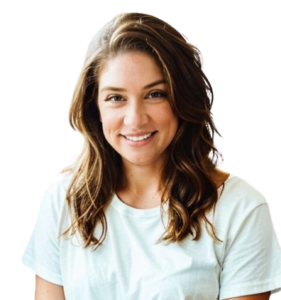
Kierra Walsh
Kiera Walsh is a dedicated Managed Care Associate at Aeroflow Health, specializing in coordinating contracting and credentialing efforts for the lactation division. In her role, Kiera effectively communicates with health plans to ensure seamless integration and compliance, enhancing the efficiency and quality of lactation services provided.
With a background in doula services and midwifery, Kiera brings a unique perspective to her position, informing her meticulous approach to managed care. Her responsibilities include negotiating contracts, managing credentialing processes, and fostering strong relationships with health plans, all aimed at optimizing operational workflows and service delivery.
Kiera is passionate about supporting preventative maternal care and breastfeeding support, driving her commitment to excellence in her role. Her work ensures that mothers receive the highest quality care and support throughout their breastfeeding journey.
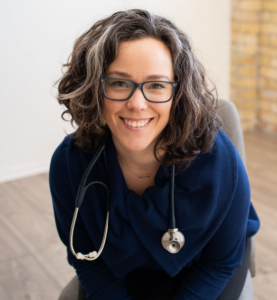
Dr. Michelle Haggerty, DO, MPH, ABOIM, NABBLM-C, IBCLC, PMH-C, RYT-200
Michelle Haggerty, DO, MPH, ABOIM, NABBLM-C, PHM-C is an innovator, adventurer, and advocate. She is a mom to 3 young boys and two angel babies. Dr. Haggerty is an integrative family physician and lactation medicine specialist who is passionate about revolutionizing postpartum care so that people have the tools and resources they need to confidently navigate the 4th trimester. She has a private practice providing in-home medical care to dyads during the 4th trimester and beyond called Fourth Trimester Doc (www.fourthtrimesterdoc.com), is co-executive director of the nonprofit Center for 4th Trimester Care (www.c4tc.co) providing professional support for healthcare professionals working with families postpartum, and also provides coaching services for postpartum folks nationally. She is consistently recognized as a Top Doctor in various publications.

Aleah Walker, IBCLC, CD (DTI) - Lactation Manager & Birth Team Captain, Aeroflow Breastpumps
Aleah Walker is a Lactation Consultant, Nutritionist and a Certified Labor and Postpartum Doula. She has worked for Aeroflow since November 2020. She has been married for 17 years and is a mother to 2 precious kiddos. Aleah started her career at her local WIC office as a Nutritionist right out of college in 2008. Moving up the ranks to a Nutrition Manager, Aleah found a passion for the Breastfeeding Peer Counselor program while working at WIC and made a lateral move to working with that program. After the birth of her first child, Aleah felt the urge to become a doula as she utilized doula support for her birth. With her certification, she started her own private practice supporting families in her community as a doula and lactation consultant. After almost 12 years at WIC, Aleah ventured to a new atmosphere obtaining a job as a Lactation Consultant in a hospital. Then during the pandemic, Aleah was approached with the opportunity to continue pursuing her passion and providing Lactation care and support to families across the nation through an up-and-coming virtual platform with Aeroflow and the rest is history!

Leteace Lee, RNC, IBCLC - Aeroflow Breastpumps
Leteace Lee is a Certified Registered Nurse with expertise in Maternal and Newborn Care, Perinatal Mental Health, and as an International Board Certified Lactation Consultant (IBCLC). She serves as a Lactation Consultant and Educator with Aeroflow Breastpumps. As a Holistic Mother-Baby Advocate, Leteace focuses on providing comprehensive support in breastfeeding as well as education in prenatal, birth, and postpartum care. Based in Maryland, she offers local in-person consults and virtual lactation consultations to women throughout the country.
References
2020 United States Lactation Consultant Association 197 Clinical Lactation, 2020, 11(4), http://dx.doi.org/10.1891/CLINLACT-D-20-00023
MarchofDimes. (2023, December). Maternity Care Desert. March of Dimes | PeriStats. https://www.marchofdimes.org/peristats/data?top=23


